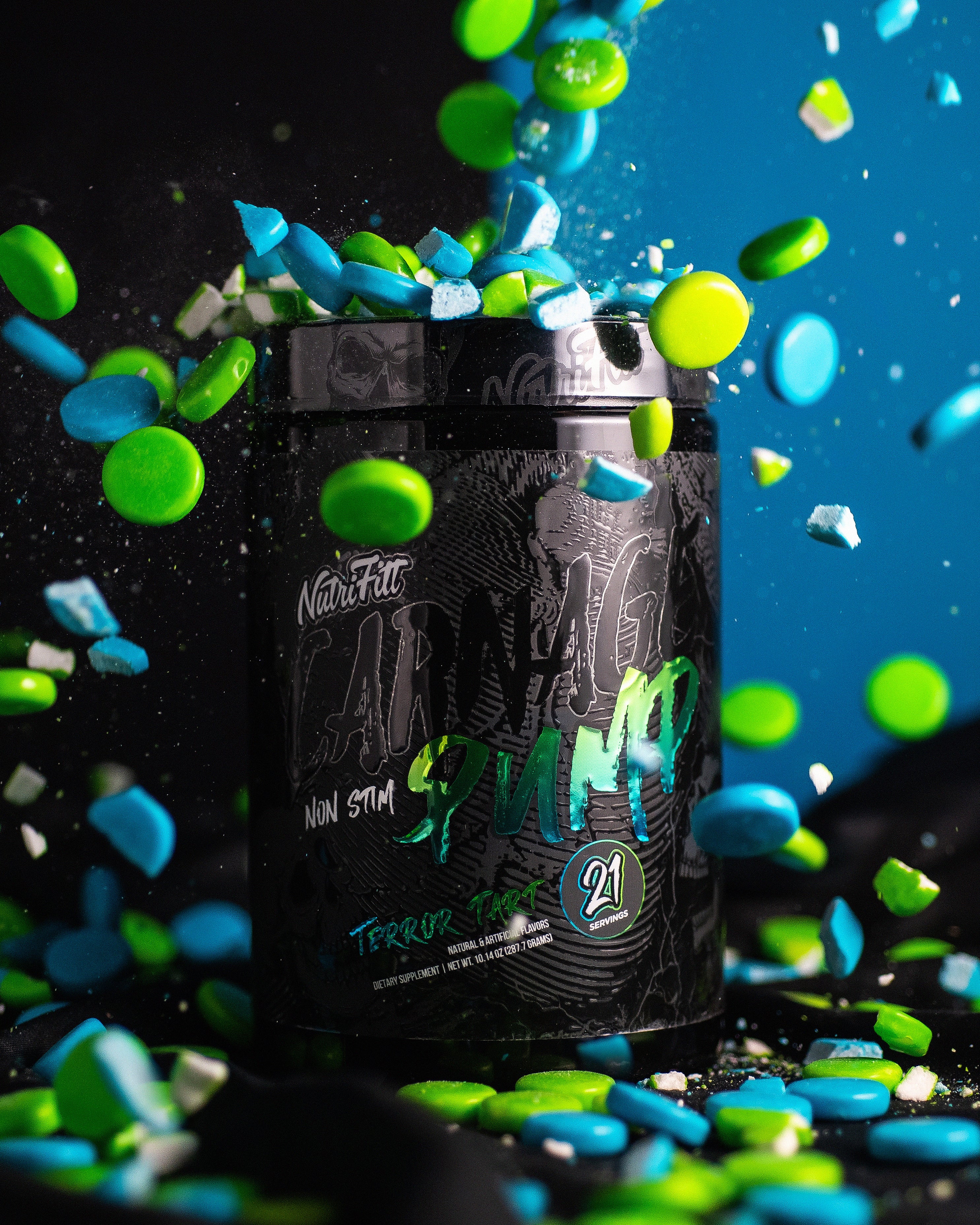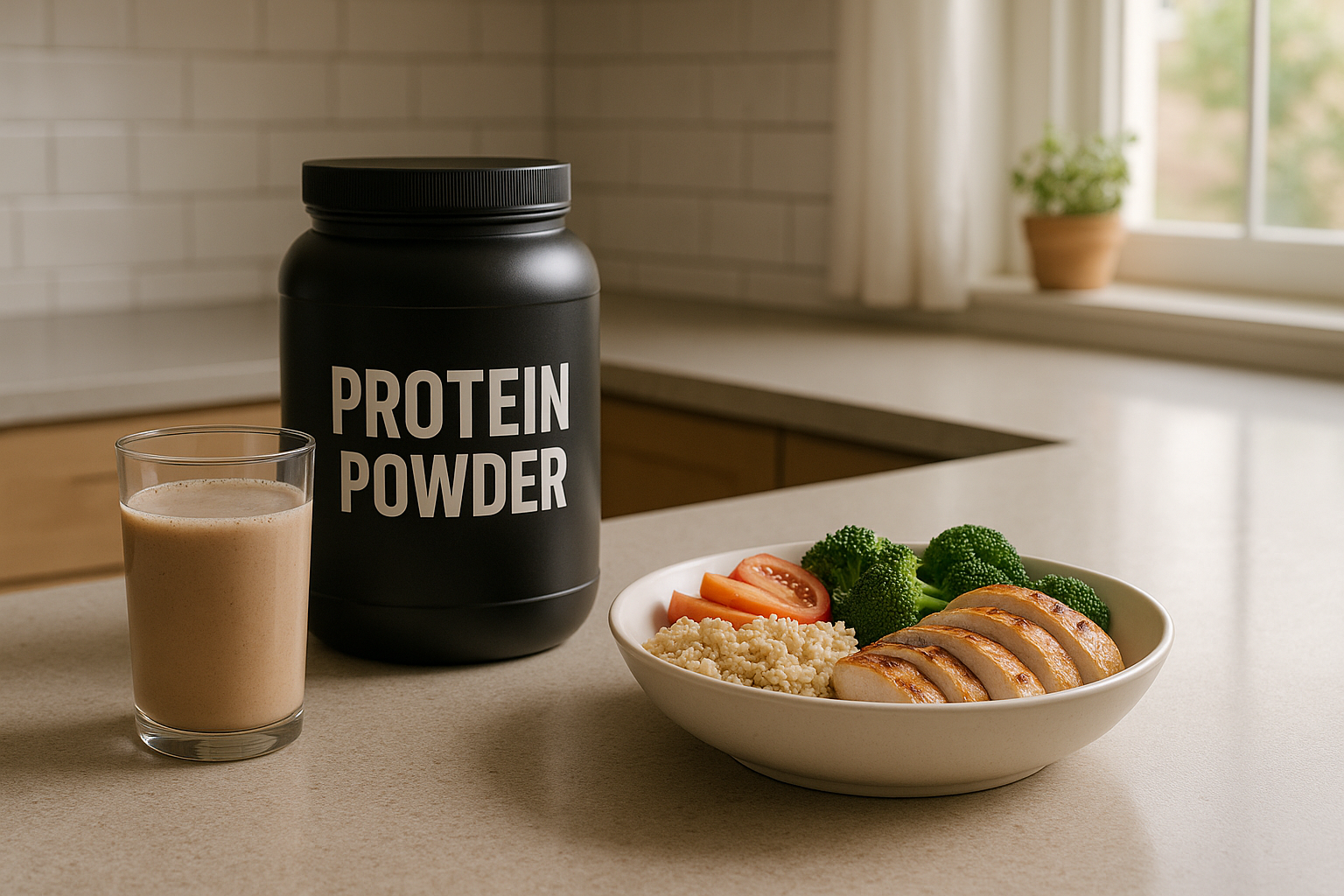
Strength Training Supplement Timing: Complete Guide
What is Supplement Timing?
Want better results from your workouts? Timing your supplements can help. Here's what you need to know:
- Protein: Aim for 20-40g within 2-3 hours post-workout. If training fasted, consume protein immediately after.
- Creatine: Best taken after exercise (3-5g) to boost strength and muscle growth.
- Pre-Workout: Take 15-30 minutes before training. For caffeine, plan for 30-60 minutes before.
- Daily Protein Goal: 1.6-2.2g per kg of body weight, spread across 3-4 meals.
- Before Bed: 40g of casein supports overnight recovery.
Key takeaway: Hitting your total daily protein and supplement goals matters more than exact timing. But, aligning supplements with your workouts can give you an extra edge. Keep reading for simple, research-backed strategies to maximize your results!
Pre-Workout Supplements: How To Properly Use It To Boost Performance
Pre-Workout Timing
Pre-workout timing plays a key role in optimizing strength training by taking advantage of your body's metabolic readiness.
When to Take Pre-Workout
For most pre-workout supplements, aim to take them 15-30 minutes before your workout. If the product contains caffeine, plan for 30-60 minutes beforehand to match caffeine's peak effectiveness, which typically occurs around 45 minutes. If you're training in the morning and can't have a full meal, consume 0.5-1.0g of carbs per kilogram of body weight about 30-60 minutes before starting your session.
Main Pre-Workout Supplements
| Supplement | Timing | Recommended Dosage | Primary Benefit |
|---|---|---|---|
| Caffeine | 30-60 min pre-workout | 3-6mg/kg bodyweight | Energy & focus |
| Beta-alanine | Daily use | 2-5g | Muscle endurance |
| Citrulline malate | 60 min pre-workout | 6-8g | Blood flow & pumps |
Pre-Workout Supplement Combinations
For strength-focused sessions, a mix of 200-400mg caffeine, 3-5g creatine, and 2-3g beta-alanine works well. For workouts lasting longer than 90 minutes, split the dose: take half before the session and the other half during training.
"A 2010 Journal of ISSN study found multi-ingredient pre-workouts taken 10 minutes before exercise increased training volume versus placebo."
Safety tip: Always start with smaller doses to gauge your tolerance, and avoid taking pre-workouts too late in the day to prevent sleep disruptions.
While these pre-workout strategies set the stage for peak performance, what you do after your workout is just as crucial. Next, we'll dive into post-workout timing.
Post-Workout Timing
After a workout, the right timing for supplements can significantly boost your strength training results.
Protein Timing After Exercise
Research highlights the importance of protein intake right after exercise, but the window for optimal consumption lasts throughout the recovery period. A good goal is 20-40 grams of high-quality protein within 2-3 hours after your workout. If you're training on an empty stomach, prioritize protein intake sooner rather than later:
| Training Type | Protein Timing | Recommended Amount | Additional Notes |
|---|---|---|---|
| Heavy Resistance | 0-2 hours post-workout | 30-40g | Use fast-digesting proteins |
| HIIT | Within 30 minutes | 20-30g | Include carbs |
| Fasted Training | Immediately after | 30-40g | Add fast-acting carbs |
Post-Workout Creatine Use
Taking creatine after your workout has been shown to be more effective for building muscle and strength compared to consuming it beforehand. A meta-analysis found this timing leads to greater increases in both fat-free mass and overall strength gains.
Post-Workout Supplement Combinations
To maximize recovery, consider this supplement stack based on research:
| Supplement | Amount | Timing | Purpose |
|---|---|---|---|
| Whey Protein | 20-40g | Within 2 hours | Supports muscle repair |
| Fast-digesting Carbs | 40-100g | Within 30 minutes | Replenishes glycogen |
| Creatine Monohydrate | 3-5g | Immediately after | Boosts strength |
For additional recovery benefits, you can include 5-10g of glutamine, which helps with gut health. Liquid formats are ideal for quicker absorption, especially if you're training multiple times a day.
Pro tip: If you work out in the evening, consuming 40g of protein before bed can improve overnight muscle recovery and protein synthesis during sleep.
While these guidelines provide a strong starting point, tailoring your post-workout nutrition to your specific goals will yield the best results.
Timing for Different Training Goals
Adjusting your nutrition timing can make a big difference depending on your workout goals. Here's how timing works for muscle growth and endurance, as well as tips for fasted training.
Muscle Growth vs Endurance
| Goal | Pre-Workout | During | Post-Workout |
|---|---|---|---|
| Muscle Growth | Caffeine | - | 20-30g protein |
| Endurance | 30-50g carbs, caffeine | 30-60g carbs per hour | 1:3 or 1:4 protein-to-carb ratio |
For endurance workouts, carbohydrate timing is key. During long sessions, aim for 30-60 grams of carbs per hour to keep your energy steady. Afterward, focus on a 1:3 or 1:4 protein-to-carb ratio, ideally within 30 minutes, to help with recovery.
Fasted Training Supplements
A 2023 study from the Journal of Sports Science revealed that taking BCAAs at the right time during fasted training can preserve 23% more muscle mass compared to untimed use.
Here’s a step-by-step guide for fasted training:
- Pre-workout (15-30 minutes before): Take 5-10g of BCAAs to reduce muscle breakdown.
- During workout: If your session lasts more than an hour, consider an extra 5g of BCAAs.
- Post-workout (within 30 minutes): Consume 20-30g of protein to support muscle recovery.
For those who train fasted, targeted products like NutriFitt's pre-workouts are crafted to support both fasted and regular sessions. They come in stimulant and non-stimulant options to suit different preferences.
sbb-itb-7567710
24-Hour Supplement Schedule
Focusing solely on workout timing is helpful, but structuring your entire day around a supplement schedule can amplify your results. By timing supplements strategically, you can get the most out of your strength training efforts.
Daily Timing Chart
| Time | Supplement | Purpose |
|---|---|---|
| Pre-Workout | Creatine + Pre-workout | Boosts performance |
| Post-Workout | Whey + Carbs | Kickstarts recovery |
| Before Bed | Casein | Supports overnight muscle repair |
For best results, aim to space supplements 2-3 hours apart to ensure proper absorption.
Timing Tips
Make sure to align this schedule with your primary fitness goal (refer to the earlier section on Timing for Different Training Goals). While the concept of the "anabolic window" has evolved, timing still plays a role in maximizing results.
This approach works even better when paired with the goal-specific strategies already covered.
Common Timing Mistakes
Athletes and fitness enthusiasts often get caught up in the idea of perfect supplement timing, relying on outdated advice that complicates their nutrition plans. Let’s clear up some of these misconceptions with research-backed insights.
Post-Workout Window Myths
The idea of the "anabolic window" has been one of the most persistent myths in strength training. Many believe they need to consume protein within 30-60 minutes after working out, but research shows that total daily protein intake matters more.
"The timing of post-exercise nutrition is more dependent on the individual's training state rather than a strict 30-60 minute window", explains a review in the Journal of the International Society of Sports Nutrition.
Timing depends on whether you train on an empty stomach or after eating:
| Training State | Recommendation |
|---|---|
| Fasted Training | Consume nutrients within 2 hours |
| Fed Training | A flexible 5-6 hour window works |
| Multiple Sessions | Focus on recovery between workouts |
Protein Timing Insights
The obsession with protein timing often distracts from the bigger picture: hitting your total daily protein goals. A meta-analysis found that protein supplementation boosts muscle mass and strength regardless of timing. What matters most is consistency.
Here are the key points:
- Daily Target: Aim for 1.6-2.2g of protein per kilogram of body weight.
- Meal Frequency: Spread protein intake across 3-4 meals.
- Pre-Sleep Protein: About 40g of casein before bed supports muscle protein synthesis.
Research also highlights that consuming protein before sleep can enhance muscle protein synthesis during resistance training programs.
Focusing on these essentials - consistent intake and hitting daily targets - helps simplify your supplement schedule and avoid unnecessary complications.
Key Takeaways
Research shows that when you take supplements can impact strength training results, but your overall daily nutrient intake is still the most important factor.
Creatine, in particular, has been shown to work better when timed correctly. Taking 3-5g of creatine with carbs after a workout can improve strength gains.
Here are three key timing tips backed by research:
- Protein Timing: Aim for 20-40g of protein within 2 hours after your workout and 40g of casein before bed to support muscle recovery and growth.
- Creatine Timing: Post-workout creatine can help boost both strength and muscle development.
- Consistency: Stick to a regular schedule for nutrient timing, especially if you train multiple times a day.
For the best results, pair these strategies with high-quality supplements. Look for products that are third-party verified to ensure accurate dosing and good absorption.
Still have questions? Check out the FAQ section below for more details.
FAQs
Do I need both pre and post-workout supplements?
Pre and post-workout supplements can help improve performance and speed up recovery, but they aren't a must-have. Your priority should be hitting your daily nutrition goals. These supplements are most helpful for people doing multiple training sessions a day, working out on an empty stomach, or needing quick meal options. This lines up with the recommendations in the 24-Hour Supplement Schedule section.
Is protein timing a myth?
The idea of a strict "anabolic window" for protein intake has been exaggerated. As highlighted in the Common Timing Mistakes section, research shows that your total daily protein intake matters much more than exact timing.
Key takeaways on protein timing:
- Focus on meeting your daily protein goals above all else.
- Timing can be useful for specific situations like fasted training or having protein before bed, but overall daily intake is what counts most.
Should I take creatine before or after my workout?
Although creatine works well regardless of timing when taken consistently, research suggests post-workout may be slightly more effective. Taking 3–5g of creatine monohydrate after exercise—especially with a source of carbohydrates or protein—can help improve absorption and support strength, power, and lean muscle growth. This timing appears to be more beneficial for individuals doing resistance training multiple times per week. That said, the most important factor is taking it consistently every day. Beginners should focus on making creatine a daily habit, whether that’s post-workout or at another convenient time that ensures long-term adherence.
What’s the biggest mistake beginners make with supplement timing?
One of the most common mistakes novice athletes make is obsessing over "perfect" supplement timing while neglecting their overall nutrition and consistency. For example, stressing about drinking a protein shake exactly 30 minutes after a workout won’t matter much if you’re not hitting your daily protein needs or eating enough calories. Another error is relying too heavily on pre-workouts without understanding their ingredients or tolerances. Supplement timing can help fine-tune your performance, but it’s not a replacement for a solid nutrition foundation. Focus on consistency first—build habits around daily intake, proper sleep, and recovery—then optimize timing as you progress.
Do I need to take supplements before bed?
Taking supplements before bed can support overnight recovery, especially if you're focused on building muscle. A popular option is casein protein, a slow-digesting protein that provides a steady release of amino acids while you sleep. Consuming about 40g of casein has been shown to support muscle repair and protein synthesis during the night, which is particularly helpful after evening workouts or for people aiming to gain muscle. While it’s not essential, it can give you an advantage—especially if your overall protein intake is already on point. It’s also a smart strategy for individuals who train fasted or don’t eat close to bedtime. Check out our article on nighttime supplement timing!



















